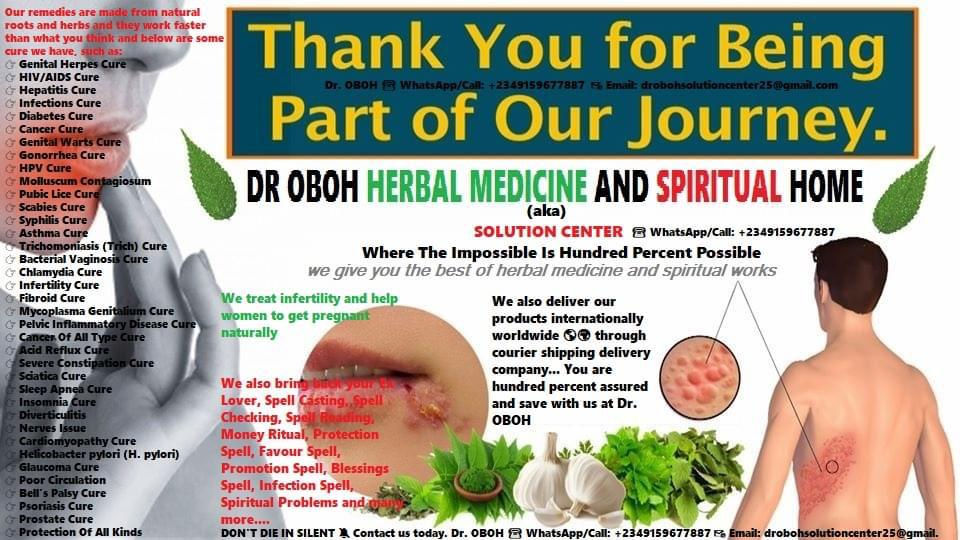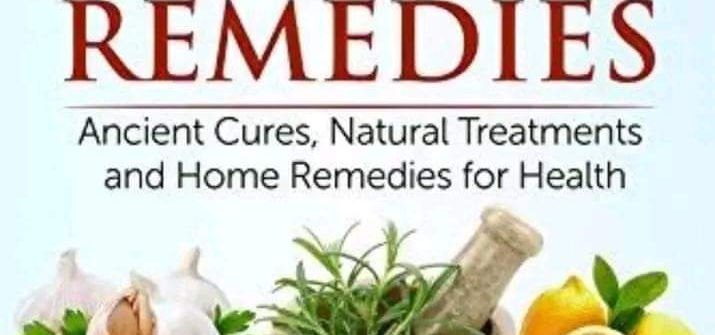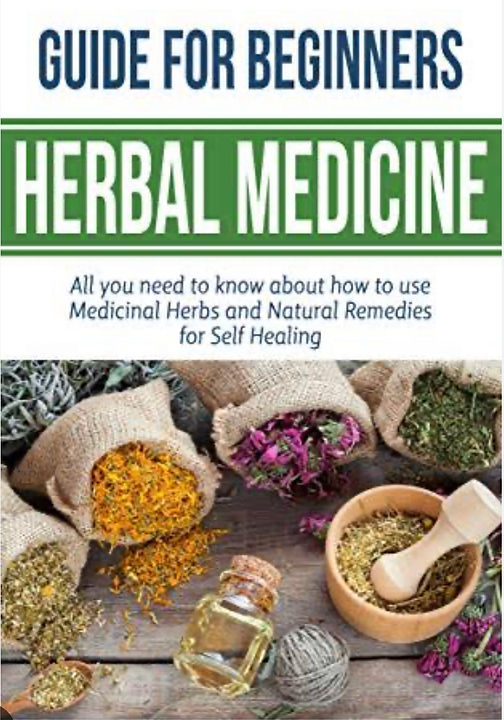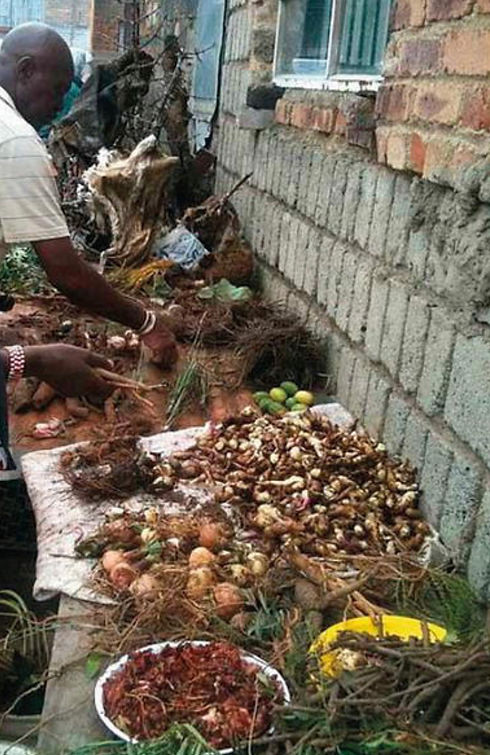
THE VALUE OF DR OBOH
PROFESSIONAL HERBAL HEALER
Dr Oboh is a very spiritual and powerful traditional herbal doctor with extensive knowledge on how to provide solutions on people affected by common dreadful or deadly diseases/viruses. In other word doctors Oboh has treated several cases that is beyond medical professionals which is medically and other dr Oboh have greater solutions than the mere treatment by medical laboratories. Your 100% solutions is here a popular adage: IF YOU HIDE YOUR PAIN IT WILL HIDE YOU, A PROBLEM SHARE IS A PROBLEM SOLVE
WELCOME TO DR OBOH HERBAL HOME 🌿
Herbal Medicine is the application of the therapeutic properties of plants (flowers, roots, and or leaves) in the form of liquid tinctures, herbal teas, capsules, salves, creams, and baths.
Dr Oboh herbal center offers a natural and holistic approach to medicine, that promotes healing and wellness through healthy alternatives to traditional medicine. Dr Oboh herbal center strongly feels it is our responsibility as healthcare practitioners to encourage and to educate our patients to take care of their own health. Let the healing process begin with Dr Oboh herbal center.The doctors said Herpes virus do not have medical cure because the virus is capable of hiding within the human cells, it remains protected from your immune system. Herpes isn’t a special virus – your immune system has the tools to fight it back. But because it is able to lay dormant in protected cells, your immune system is unable to remove it from your body,But with strong reactive herbal medication is capable of getting rid of the virus gradually and totally from your body without damaging any of your cells,natural herbs kills the virus totally not just reducing the out break.
Herbal Medicine is the application of the therapeutic properties of plants (flowers, roots, and or leaves) in the form of liquid tinctures, herbal teas, capsules, salves, creams, and baths. Naturopathic Doctors are trained in the appropriate use of medicinal plants as well as drug-herb interactions. Modern research has demonstrated that medicinal plants are effective for addressing a myriad of chronic and acute disorders. At our office, we use only the highest quality organic plant products, sourcing our plants from all over the world. We carry professional lines of supplements, tested for the highest standards of purity and effectiveness.
Summary
Herbal medicine is the use of plants to treat disease and enhance general health and wellbeing.
Herbs can interact with other pharmaceutical medications and should be taken with care.
Always see your regular medical doctor (GP) about any health concerns and tell them about any herbal medicines you are taking or thinking of taking.
Never stop taking prescribed medications in favour of herbs without first discussing it with your GP.
Be careful about purchasing herbal medicines. Unregulated herbal medicines, such as some traditionalfolk medicines, may not be manufactured to the same quality and standard as regulated medicines.
What is herbal medicine?
Herbal medicine has its origins in ancient cultures. It involves the medicinal use of plants to treat disease and enhance general health and wellbeing.
Some herbs have potent (powerful) ingredients and should be taken with
the same level of caution as pharmaceutical medications.
In fact, many pharmaceutical medications are based on man-made versions of naturally occurring compounds found in plants. For instance, the heart medicine digitalis was derived from the foxglove plant.
Herbal medicine aims to return the body to a state of natural balance so that it can heal itself. Different herbs act on different systems of the body.
At our office, we use only the highest quality organic plant products, sourcing our plants from all over the world. We carry professional lines of supplements, tested for the highest standards of purity and effectiveness.

African traditional medicine is a form of holistic health care system organized into three levels of specialty, namely divination, spiritualism, and herbalism. The traditional healer provides health care services based on culture, religious background, knowledge, attitudes, and beliefs that are prevalent in his community. Illness is regarded as having both natural and supernatural causes and thus must be treated by both physical and spiritual means, using divination, incantations, animal sacrifice, exorcism, and herbs. Herbal medicine is the cornerstone of traditional medicine but may include minerals and animal parts. The adjustment is ok, but may be replaced with –‘ Herbal medicine was once termed primitive by western medicine but through scientific investigations there is a better understanding of its therapeutic activities such that many pharmaceuticals have been modeled on phytochemicals derived from it. Major obstacles to the use of African medicinal plants are their poor quality control and safety. Traditional medical practices are still shrouded with much secrecy, with few reports or documentations of adverse reactions. However, the future of African traditional medicine is bright if viewed in the context of service provision, increase of health care coverage, economic potential, and poverty reduction. Formal recognition and integration of traditional medicine into conventional medicine will hold much promise for the future.

The development and use of traditional herbal medicine (THM) have a very long historical background that corresponds to the Stone Age. In the continent of Africa, the practice of traditional healing and magic is much older than some of the other traditional medical sciences.
[1] And seems to be much more prevalent compared to conventional medicine. African traditional medicine is a form of holistic health care system that is organized into three levels of specialty, which include divination, spiritualism, and herbalism, though these may overlap in some situations.
[2, 3].A traditional healer is one who provides medical care in the community that he lives, using herbs, minerals, animal parts, incantations, and other methods, based on the cultures and beliefs of his people. He must be seen to be competent, versatile, experienced, and trusted
[4]. In other definitions, priestesses, high priests, witch doctors, diviners, midwives, seers or spiritualists, and herbalists are included. Traditional medical practitioner (TMP), however, seems to be a modern acceptable concept agreed on by the Scientific Technical and Research Commission (STRC) of the Organization of African Unity (OAU), which is now African Union (AU). In specific cultures, these people go by their local names, depending on their tribe, such as babalawo, dibia or boke, Sangoma or inyanga in South Africa, akomfo, bokomowo in Ghana, niam-niam, shaman, or mugwenu in Tanzania, nga:nga in Zambia, shaman or laibon in Kenya, etc. in Nigeria
[5]. It is commonplace to see traditional healers dressed in certain peculiar attires, with head bands, feathers, and eyes painted with native chalk.

Traditional medicine is viewed as a combination of knowledge and practice used in diagnosing, preventing, and eliminating disease. This may rely on past experience and observations handed down from generation to generation either verbally, frequently in the form of stories, or spiritually by ancestors or, in modern times, in writing
[6]. It has also been said that before attaining knowledge in traditional African medicine, one is often required to be initiated into a secret society, as many characteristics of this form of medicine can only be passed down to initiates. The importance of traditional medicine, however, dwindled during the colonial period, whereby it was viewed as inferior to Western medicine. It was thus banned completely in some countries due to its association with witchcraft /voodoo, supernatural, and magical implications, in which case, it was also termed “juju”(Nigeria) or “native medicine,” since it made use of charms and symbols which were used to cast or remove spells. Some forms of treatment may also involve ritual practices such as animal sacrifices to appease the gods, if the ailment was envisaged to be caused by afflictions from the gods, especially in the treatment of the mentally ill patients.
METHODOLOGY
I am Dr. Oboh At this time, I would like to take this opportunity to give you a brief synopsis of how our premise and methodology achieves successful results in eradicating diseases.
This brief, but concise illustration will reveal our premise and methodology to be consistent. According to Western medical research, diseases are a result of the host being infected with a “germ”, “virus”, or “bacteria”. In their approach in treating these “infestations”, inorganic, carcinogenic chemicals are employed. Our research immediately uncovers flaws in their premise through basic deductive reasoning. By consistently utilizing the same premise and methods, they have consistently yielded ineffective results. In essence, in the 400-year tradition of the European philosophy of medicine, their approach in treating disease has yet to produce any cures.
In contrast, as we examine an African approach to disease, it diametrically opposes the present Western approach. Specifically, the African Bio-mineral Balance refutes the germ/virus/bacteria premise. Our research reveals that all manifestation of disease finds its genesis when and where the mucous membrane has been compromised. For example, if there is excess mucous in the bronchial tubes, the disease is Bronchitis; if it is in the lungs, the disease is Pneumonia; in the pancreatic duct, it is Diabetes; in the joints Arthritis. All of the African Bio-mineral Balance compounds are comprised of natural plants; which means its constitution is of an alkaline nature.
This is important- and instrumental in our success in reversing pathologies- because disease can only exist in an environment that is acid; thus it is inconsistent to utilize inorganic substances when treating disease because they are of an acid base. Only consistent use of natural botanical remedies will effectively cleanse and detoxify a diseased body, reversing it to its intended alkaline state.
Our system of nutrition goes even further. In addition to removing the accumulation of years of toxins, the African Bio-mineral Balance replaces depleted minerals and rejuvenates damaged cell tissue eroded by the acid, diseased state. The primary organs of elimination are the skin, liver, gall bladder, lymph glands, kidneys and the colon. If all toxins are eliminated from the above mentioned organs they will be recycled throughout the entire body, manifesting disease. Eventually the body breaks down in the weakest organs due to its inability to dispel the influence of toxins. The colon is the most important organ and must be cleansed by detoxifying before any disease can be reversed. If the colon is the only organ cleansed and detoxified the other major organs will be left toxic, thus leaving the disease in the body.
It is with Dr. Oboh intra-cellular detoxifying cleanse that each cell in the body will be purified. The body will then rebuild and rejuvenation will take place. Dr. Oboh offers the Bio-Mineral Therapy which is a natural vegetation cell food. A living substance which nourishes the body and detoxifies at the cellular level.
One must consume life – not Death – to maintain and sustain oneself.


There has been more interest expressed recently in the effects of some of the medicinal plants of Africa. "The pharmaceutical industry has come to consider traditional medicine as a source for identification of bio-active agents that can be used in the preparation of medicine."Pharmaceutical industries are looking into the medicinal effects of the most commonly and widely used plants to use in drugs. In comparing the techniques of African healers and Western techniques, T. Adeoze Lambo, a Nigerian psychiatrist, stated in 1979, "At about three years ago, we made an evaluation, a programme of their work, and compared this with our own, and we discovered that actually they were scoring almost sixty percent success in their treatment of neurosis. And we were scoring 85 percent-in fact, more than eighty five percent.
Effectiveness
Herbal medicines in Africa are generally not adequately researched, and are weakly regulated.There is a lack of the detailed documentation of the traditional knowledge, which is generally transferred orally.A literature survey in 2014, indicated that several African medicinal plants contain bioactive anti-trypanosomal compounds that could be used for the treatment of African trypanosomiasis ("Sleeping sickness") but no clinical studies had been conducted on them. Nigeria traditional healer have been long and vocal advocates of a local traditional plant called (Agbo) claiming it assists in the treatment of HIV/AIDS, Cancer.
There have been attempts to assess some traditional medicines through clinical trails, although none have so far reached phase
RELATIONSHIP WITH MODERN MEDICINE

WHAT IS THE HISTORY OF HERBAL MEDICINE
Plants have been used for medicinal purposes long before recorded history. Ancient Chinese and Egyptian papyrus writings describe medicinal uses for plants as early as 3,000 BC. Indigenous cultures (such as African and Native American) used herbs in their healing rituals, while others developed traditional medical systems in which herbal therapies were used. Researchers found that people in different parts of the world tended to use the same or similar plants for the same purposes.
In the early 19th century, when chemical analysis first became available, scientists began to extract and modify the active ingredients from plants. Later, chemists began making their own version of plant compounds and, over time, the use of herbal medicines declined in favor of drugs. Almost one fourth of pharmaceutical drugs are derived from botanicals.
Recently, the World Health Organization estimated that 80% of people worldwide rely on herbal medicines for some part of their primary health care. In Africa, about 600 to 700 plant based medicines are available and are prescribed by some 70% of Nigerian physicians. In the past 20 years in the United States, public dissatisfaction with the cost of prescription medications, combined with an interest in returning to natural or organic remedies, has led to an increase in herbal medicine use.

PRACTICE OF AFRICAN TRADITIONAL/HERBAL MEDICINE
The use of herbal medicine is not restricted to developing countries. Over the years, there has been an escalating interest in the use of herbal medicine worldwide. This has greatly expanded the demand for plant products, since herbal medicine has an advantage of being inexpensive with minimal side effects compared to synthetic medicines. The growth of the herbal drug market has attracted pharmaceutical companies which in turn have driven scientific validation and clinical studies on herbal medicines. Thus far, few programs have been established to study the safety and efficacy of herbal medicines as originally proposed by the WHO Guidelines for the assessment of herbal medicines. These guidelines have been helpful in establishing the role of herbal medicine in the health care industry. However, the data to provide a precise assessment on the safety, quality and efficacy of herbal medicine is inadequate generating concerns regarding the use of herbal products.
In African traditional medicine, the curative, training, promotive, and rehabilitative services are referred to as clinical practices Clinical practice can also be viewed as the process of evaluating conditions of ill-health of an individual and its management. These traditional health care services are provided through tradition and culture prescribed under a particular philosophy, in which the norms and taboos therein are strictly adhered to and form the basis for the acceptability of traditional health practitioners in the community they serve.
According to the World Health Organization (WHO), health is defined as “a state of complete physical, mental and social well-being and not merely the absence of disease or infirmity” and views health as one of the fundamental rights of every human being. The combination of physical, mental/emotional, and social well-being is commonly referred to as the health triangle.


The recognition of disease and illnesses in traditional Africa meant that every society needed to devise means of containing its problem. Worldwide, different societies have different herbal traditions that have evolved over a long period of time. Similar to modern day Western treatment patterns, African traditional societies also involved herbalism, surgery, dietary therapy, and psychotherapy, in addition to traditional exorcism, rituals, and sacrifice [28]. These medical technologies had evolved even before the coming of the “white man” (Arabs and Europeans). Successful treatments became formalized, sometimes with prescriptions of correct methods of preparation and dosage. In addition, the ingredients and the manner of preparation varied with the ailment but were also dependent on various factors such as geographical, sociological, and economic, but the significant point was that in many cases, patients were cured of their physical or psychological ailments. In African traditional medicine, traditional health practitioners (THP) assess patients in order to diagnose, treat, and prevent disease using their expertise by the following methods:
CONTACT ME
Have a particular challenge you’re trying to deal with? Contact me today and see what I can do for you.
Nigeria




